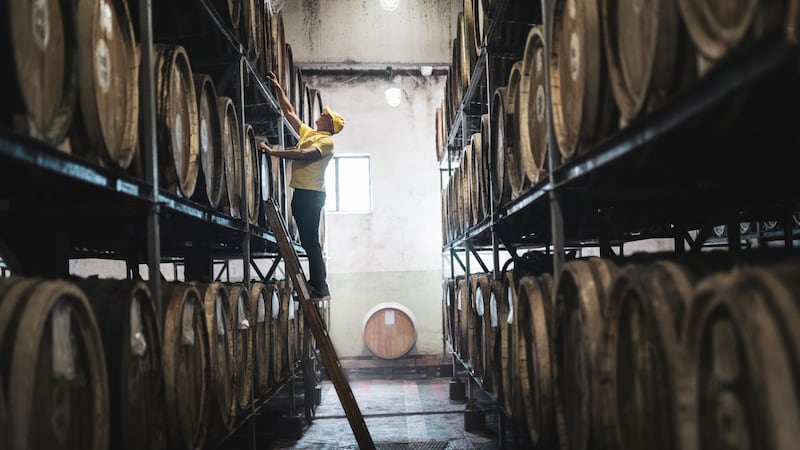Dublin Airport is seeking a further boost to passenger charges levied on airlines as its copes with the cost of this summer’s air travel surge.
Airport owner, State company Dublin Airport Authority (DAA), recently asked regulators for an increase in charges from a current cap of €8.50 to €14.58 by 2026 to support plans for a near €2.5 billion expansion of its facilities.
A race to recruit security staff to bring numbers there to 920 by next month has prompted DAA to update its submission and seek permission from the Commission for Aviation Regulation for a hike to a maximum of €14.77 by 2026.
DAA explained that its new submission “takes into account changes in operating costs which are now necessary for the successful running of security at Dublin Airport” following air travel’s rapid recovery.
RM Block
Airlines pay passenger charges, which then form part of the cost that they pass on to their customers’ airfares.
News of the DAA’s extra submission comes just days before the Defence Forces place 130 soldiers on standby for six weeks to man vehicle security points at the airport as a contingency.
Delays at the airport over the last weekend in May caused 1,000 passengers to miss flights. However, DAA said on Monday that the vast majority of the 420,000 passengers that travelled through Dublin since July 1st spent less than 45 minutes queuing at security.
DAA calculates that Dublin’s operating costs will rise from €274.5 million this year to €377.5 million in 2026, while staff numbers will increase from 2,518 full-time equivalents to 3,111 over the same period. It wants the price cap increased to €13.04 next year, to €13.60 in 2024, to €13.89 in 2025 and €14.77 the following year. Its original submission sought an increase to €12.85 next year, in advance of the €9 currently planned, then to €13.40 in 2024 and €13.69 in 2025, before going to €14.58 in 2026.
Next year’s operating costs will increase to €310.1 million, rising to €344.3 million in 2024, then to €365.1 million the following year. Commercial revenue will grow from €243.8 million next year to €299.6 million in 2026.

Which direction are house prices going?
At the same time, DAA calculates that investment demands will grow, from €289.4 million next year to €425 million in 2026.
Airlines are likely to criticise the move. Eddie Wilson, chief executive of Ryanair DAC, the group’s biggest company, said there was “no justification” to increase already high charges following DAA’s last submission.
DAA argued that it providing high-quality services on ultra-low passenger charges was unsustainable. “Recent experiences have highlighted that passengers expect a swift return to pre-pandemic service levels,” it said, adding that it will take time and money to improve current standards.
Meanwhile, DAA said that it had doubled security staff in June, while data showed that 93 per cent of passengers got through security in less than 45 minutes.
“By comparison with the more drastic measures and impacts reported by peer airports internationally, our current plans are proving effective,” the company added.
It maintained that other than a risk of a Covid outbreak among staff, it was stronger position to manage peak holiday traffic.
Bottlenecks at airports including London Heathrow and Amsterdam Schiphol forced airlines to cancel flights in recent weeks.
Some carriers had already cut back summer schedules when it became apparent that labour shortages were stretching air travel networks.




















